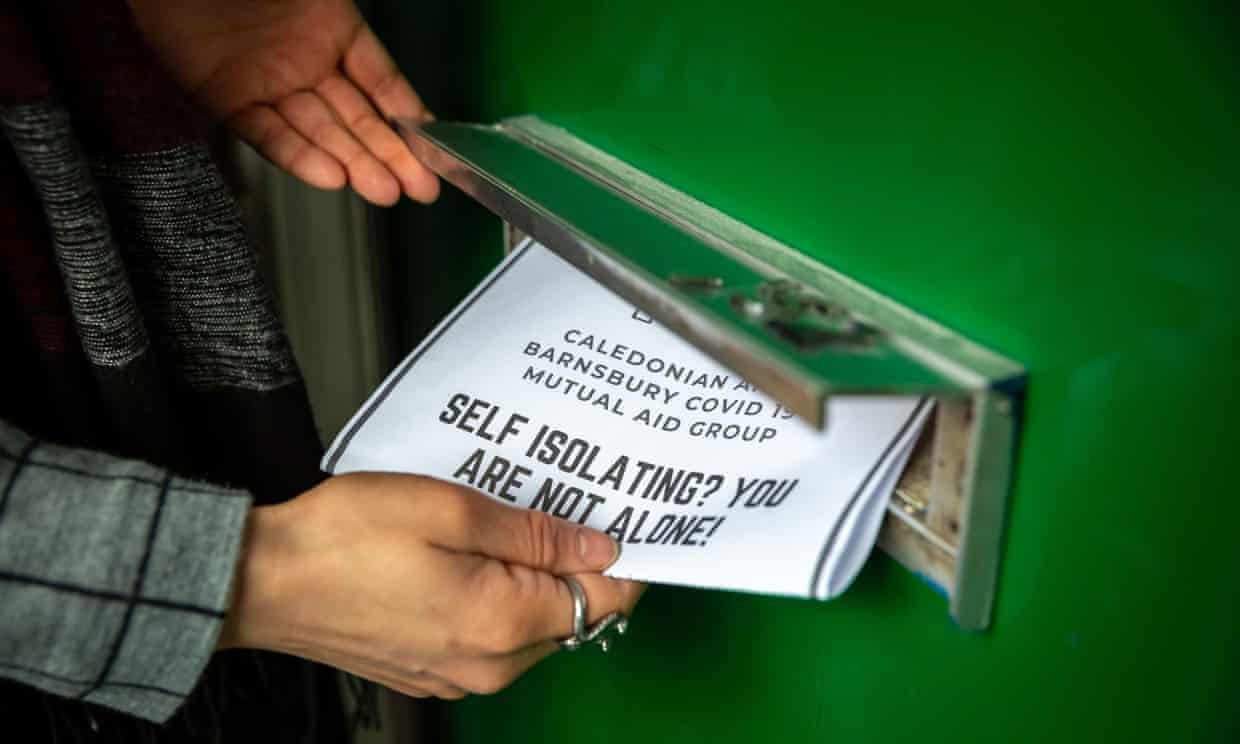Hyper-local organisations set up during the pandemic were political – but they weren’t intended to supplant state support
By Rachel Shabi, November 24, 2021
Ask members of one Covid mutual aid group in Whalley Range, south Manchester, about what they feel most proud of and two things crop up: the hardship fund and the epic street clean. It’s not hard to see why. Transforming the once rubbish-strewn alleyways that run between the neighbourhood’s back-to-back terraces was an act of collective power. Meanwhile the fund, which relies on everyone chipping in, allows any member to access £50 cash each month, no questions asked. Both of these projects have forged trust and a sense of responsibility among this group of 100 neighbours.
Spread across just three streets in south Manchester, this group is as hyper-local a version of mutual aid as you can get. Members are all from different backgrounds: renters and owners, ranging from their early 20s to late 70s. The area is home to a Pakistani community and a Sudanese family also belong to the group. Its flyers are translated into Urdu, Hindi, Arabic and Gujarati, while members use online translation to participate in the group WhatsApp chat.
The group was originally focused on providing necessities during the early months of the pandemic, such as help with shopping, collecting prescriptions or providing reliable Covid information. Its remit has since expanded – members now share food and festivals, pool DIY tools, brainstorm measures to tackle unscrupulous landlords and speeding cars, and tend to a community garden. When I met some of the group recently, one member, Helene, 50, told me: “It’s a gazillion unplanned micro-miracles that happen when neighbours talk to each other.”


